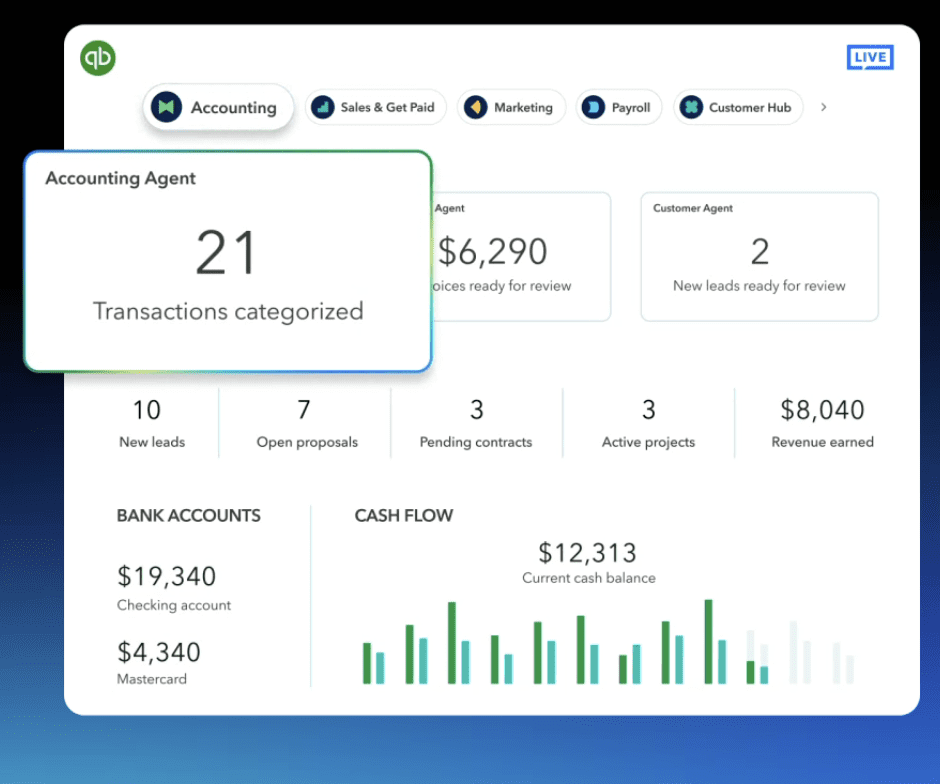23 Tips for Local CFOs to Gain Deeper Financial Insights With Reporting Tools

As a CFO, your decisions influence every corner of the business—from budgeting and forecasting to growth planning and investor relations. Yet even the most experienced finance leaders struggle to draw meaningful conclusions from raw data without the right tools in place.
Fortunately, today’s reporting technologies offer more than just numbers on a screen. With the right approach, you can uncover deeper financial insights that drive smarter strategies. Below are actionable tips to help local CFOs maximize their reporting tools for clearer, more informed decision-making.
1. Customize Dashboards to Match KPIs
Start by identifying the most critical metrics for your business. Then, build custom dashboards that reflect those key performance indicators. When your reporting tools surface the most relevant data first, it’s easier to act on what matters most.
2. Schedule Reports That Match Your Cadence
Whether you review finances weekly, monthly, or quarterly, schedule reports to match your internal cadence. Automation ensures you never miss a reporting cycle and frees you from manually pulling numbers.
3. Use Comparative Views to Spot Trends
Historical context brings clarity. Make use of tools that allow you to compare performance across months, quarters, or fiscal years. These views help you see whether the business is growing, plateauing, or declining—and why.
4. Segment Financials by Business Unit or Location
If your business spans multiple departments or regions, segmented reporting offers sharper insights. It allows you to isolate performance by category, helping you understand what’s working and where improvement is needed.
5. Set Alerts for Unusual Activity
Modern tools often let you set up notifications for unexpected activity. Spikes in expenses, sudden drops in revenue, or variances from budget can trigger alerts, giving you a chance to investigate and respond before issues escalate.
6. Track Budget vs. Actual in Real Time
Real-time tracking of budgeted versus actual spend lets you identify overruns early. Instead of waiting until month-end reviews, you can adjust in real time to stay on target.
7. Analyze Cash Flow in Detail
Cash flow reporting should go beyond the basics. Look for tools that break down inflows and outflows by category so you can better manage liquidity and plan for future investment.
8. Use Forecasting Tools to Plan Ahead
Reporting tools that include forecasting features allow you to model different scenarios. You can adjust variables like revenue growth, cost changes, or capital expenses to project future outcomes.
9. Include Non-Financial Metrics in Reports
Blending financial and operational metrics helps you understand how your finances tie to broader business performance. Include data like headcount, customer churn, or production volume to round out your reporting.
10. Build Reports That Are Executive-Friendly
Not all stakeholders need the same level of detail. When reporting to CEOs or board members, use high-level summaries and visual dashboards that quickly convey financial health without overwhelming them.
11. Drill Down Into Line Items
While summary data is useful for high-level views, you should be able to drill into individual line items when needed. This flexibility helps you investigate anomalies without toggling between tools or spreadsheets.
12. Simplify Compliance Reporting
Use your reporting system to prepare for audits or financial disclosures. The more organized and centralized your reports are, the easier it is to produce accurate compliance documentation.

13. Automate Recurring Reports
Save time by scheduling recurring reports to run and distribute automatically. This reduces the risk of human error and ensures stakeholders always have the latest data.
14. Track Department-Level Budgets
If department leaders are responsible for managing budgets, give them access to department-level reports. It promotes accountability and empowers managers to control costs.
15. Monitor Key Ratios Automatically
Keep an eye on metrics like current ratio, gross margin, or return on assets. Set up automated tracking for these ratios so you’re always aware of your financial posture.
16. Visualize Trends With Charts
Raw data can be hard to interpret at a glance. Use visual elements like bar charts, line graphs, and pie charts to make trends easier to spot and communicate.
17. Standardize Your Financial Reports
Create standardized templates for core reports like P&Ls, balance sheets, and cash flow statements. This makes internal review more efficient and builds trust with external stakeholders.
18. Reconcile Data With Source Systems
Ensure your reporting tools sync accurately with accounting and operational systems. Reconciliation across platforms helps maintain data integrity and prevents costly errors.
19. Track Financials by Project or Client
If your business is project-based or client-driven, break out financials by those categories. It’s a great way to assess profitability and prioritize high-performing relationships.
20. Empower Your Team With Self-Service Access
Give team leaders or department heads access to the specific reports they need. Self-service access encourages real-time decision-making without waiting for end-of-month reports.

21. Work With a Financial Professional
Not every CFO works with a large in-house team. If you need support analyzing reports or identifying opportunities, consider working with a financial professional. Typing “bookkeeper near me” into a search engine can quickly connect you with someone who specializes in reporting and insights.
22. Use Accounting Software That Scales
Outdated systems can limit your visibility. Investing in modern accounting software gives you access to reporting tools that grow with your business, helping you stay responsive to change.
23. Tap Expert Resources During Tax Season
Tax reporting often involves specialized insights. During these periods, consider consulting with your local tax experts to ensure accuracy and discover ways to simplify future reporting cycles.
Put Your Data to Work
Better reporting tools aren’t just about efficiency—they’re about clarity. When your data tells a clearer story, you can make better decisions, identify new opportunities, and plan with confidence. The key is finding the right systems, tailoring them to your needs, and using the insights they provide to move your business forward.



